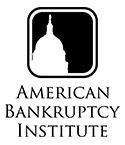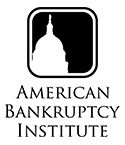Error message
Warning: Undefined array key 0 in Drupal\abi_sf\Service\Contact->getuserIDByContactId() (line 116 of modules/custom/abi_sf/src/Service/Contact.php).
Drupal\abi_sf\Service\Contact->getuserIDByContactId() (Line: 47)
Drupal\abi_sf\Plugin\Menu\SalesforceProfileLink->getUrlObject() (Line: 215)
Drupal\Core\Menu\DefaultMenuLinkTreeManipulators->menuLinkCheckAccess() (Line: 107)
Drupal\Core\Menu\DefaultMenuLinkTreeManipulators->checkAccess() (Line: 111)
Drupal\Core\Menu\DefaultMenuLinkTreeManipulators->checkAccess()
call_user_func() (Line: 153)
Drupal\Core\Menu\MenuLinkTree->transform() (Line: 411)
Drupal\menu_block\Plugin\Block\MenuBlock->build() (Line: 445)
Drupal\menu_block\Plugin\Block\MenuBlock->blockAccess() (Line: 127)
Drupal\Core\Block\BlockBase->access() (Line: 124)
Drupal\block\BlockAccessControlHandler->checkAccess() (Line: 109)
Drupal\Core\Entity\EntityAccessControlHandler->access() (Line: 329)
Drupal\Core\Entity\EntityBase->access() (Line: 63)
Drupal\block\BlockRepository->getVisibleBlocksPerRegion() (Line: 138)
Drupal\block\Plugin\DisplayVariant\BlockPageVariant->build() (Line: 270)
Drupal\Core\Render\MainContent\HtmlRenderer->prepare() (Line: 128)
Drupal\Core\Render\MainContent\HtmlRenderer->renderResponse() (Line: 90)
Drupal\Core\EventSubscriber\MainContentViewSubscriber->onViewRenderArray()
call_user_func() (Line: 111)
Drupal\Component\EventDispatcher\ContainerAwareEventDispatcher->dispatch() (Line: 186)
Symfony\Component\HttpKernel\HttpKernel->handleRaw() (Line: 76)
Symfony\Component\HttpKernel\HttpKernel->handle() (Line: 53)
Drupal\Core\StackMiddleware\Session->handle() (Line: 48)
Drupal\Core\StackMiddleware\KernelPreHandle->handle() (Line: 28)
Drupal\Core\StackMiddleware\ContentLength->handle() (Line: 32)
Drupal\big_pipe\StackMiddleware\ContentLength->handle() (Line: 201)
Drupal\page_cache\StackMiddleware\PageCache->fetch() (Line: 138)
Drupal\page_cache\StackMiddleware\PageCache->lookup() (Line: 87)
Drupal\page_cache\StackMiddleware\PageCache->handle() (Line: 48)
Drupal\Core\StackMiddleware\ReverseProxyMiddleware->handle() (Line: 51)
Drupal\Core\StackMiddleware\NegotiationMiddleware->handle() (Line: 36)
Drupal\Core\StackMiddleware\AjaxPageState->handle() (Line: 51)
Drupal\Core\StackMiddleware\StackedHttpKernel->handle() (Line: 741)
Drupal\Core\DrupalKernel->handle() (Line: 19)
Warning: Attempt to read property "Id" on null in Drupal\abi_sf\Service\Contact->getuserIDByContactId() (line 116 of modules/custom/abi_sf/src/Service/Contact.php).
Drupal\abi_sf\Service\Contact->getuserIDByContactId() (Line: 47)
Drupal\abi_sf\Plugin\Menu\SalesforceProfileLink->getUrlObject() (Line: 215)
Drupal\Core\Menu\DefaultMenuLinkTreeManipulators->menuLinkCheckAccess() (Line: 107)
Drupal\Core\Menu\DefaultMenuLinkTreeManipulators->checkAccess() (Line: 111)
Drupal\Core\Menu\DefaultMenuLinkTreeManipulators->checkAccess()
call_user_func() (Line: 153)
Drupal\Core\Menu\MenuLinkTree->transform() (Line: 411)
Drupal\menu_block\Plugin\Block\MenuBlock->build() (Line: 445)
Drupal\menu_block\Plugin\Block\MenuBlock->blockAccess() (Line: 127)
Drupal\Core\Block\BlockBase->access() (Line: 124)
Drupal\block\BlockAccessControlHandler->checkAccess() (Line: 109)
Drupal\Core\Entity\EntityAccessControlHandler->access() (Line: 329)
Drupal\Core\Entity\EntityBase->access() (Line: 63)
Drupal\block\BlockRepository->getVisibleBlocksPerRegion() (Line: 138)
Drupal\block\Plugin\DisplayVariant\BlockPageVariant->build() (Line: 270)
Drupal\Core\Render\MainContent\HtmlRenderer->prepare() (Line: 128)
Drupal\Core\Render\MainContent\HtmlRenderer->renderResponse() (Line: 90)
Drupal\Core\EventSubscriber\MainContentViewSubscriber->onViewRenderArray()
call_user_func() (Line: 111)
Drupal\Component\EventDispatcher\ContainerAwareEventDispatcher->dispatch() (Line: 186)
Symfony\Component\HttpKernel\HttpKernel->handleRaw() (Line: 76)
Symfony\Component\HttpKernel\HttpKernel->handle() (Line: 53)
Drupal\Core\StackMiddleware\Session->handle() (Line: 48)
Drupal\Core\StackMiddleware\KernelPreHandle->handle() (Line: 28)
Drupal\Core\StackMiddleware\ContentLength->handle() (Line: 32)
Drupal\big_pipe\StackMiddleware\ContentLength->handle() (Line: 201)
Drupal\page_cache\StackMiddleware\PageCache->fetch() (Line: 138)
Drupal\page_cache\StackMiddleware\PageCache->lookup() (Line: 87)
Drupal\page_cache\StackMiddleware\PageCache->handle() (Line: 48)
Drupal\Core\StackMiddleware\ReverseProxyMiddleware->handle() (Line: 51)
Drupal\Core\StackMiddleware\NegotiationMiddleware->handle() (Line: 36)
Drupal\Core\StackMiddleware\AjaxPageState->handle() (Line: 51)
Drupal\Core\StackMiddleware\StackedHttpKernel->handle() (Line: 741)
Drupal\Core\DrupalKernel->handle() (Line: 19)




